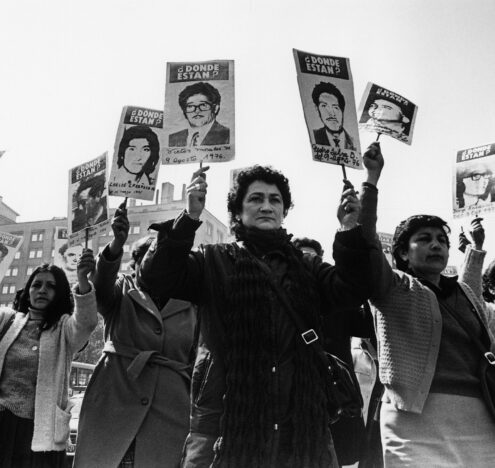Every first-year political science major has had to sit through at least one lecture on realism. As a proud political science major myself, I can easily distill the main tenets of realism, roughly, as follows: the international system is anarchic, so states are perpetually competing for power whilst being wary of other powerful states, who are all thinking and acting strategically – often with military force – out of a desire for self-preservation.
It’s taken me a good three years of a liberal arts education to rethink realism – and to rethink how realism was taught to me alongside other seemingly unquestionable monolithic terms such as “the state” and “international relations (IR),” which are the building blocks on which my political science degree rests. Discovering feminist IR theory has been eye-opening for me – so much so that I’ve started to question everything I was taught about realism, statehood, and IR theory.
Realism posits the state as a unit of analysis, from which realists extrapolate a variety of behaviors, which personifies the state. That the state is the central actor in realism speaks to realism’s deeply entrenched, masculinist ideas about how the world operates. By choosing to analyze the state as an actor, rather than the people of which states are comprised, realism personifies and genders the notion of statehood, ignoring individual experiences of women who historically suffer the worst during times of war, are paid less than their male counterparts (if they are allowed to work at all), and receive little or inadequate access to reproductive healthcare that affirms their right to maintain bodily autonomy. These are the people that IR needs to be formulated around. We (as foreign policy wonks) need to be able to craft policies that address urgent human need. And, thanks to the worldwide patriarchy, this need is gendered.
That the state is the central actor in realism speaks to realism’s deeply entrenched, masculinist ideas about how the world operates.
Many realists have pushed back against the encroachment of feminist critique. But simply because realists claim that their conception of the state is not gendered does not mean that it isn’t gendered; as feminist IR theorists such as J. Ann Tickner have explained, the awareness of gender illuminates the ways in which gender is constantly at play in examining politics. Once you start paying attention to gender disparities, you can’t stop. This is true even at the highest levels of academia – objectivity has been historically weaponized to exclude women from engaging in male spheres like foreign policy. IR theory replicates a pattern of gendered injustices that privileges male knowledge as “objective” and female (or feminist analysis) as “subjective.”
Tickner writes that realism doesn’t provide a good entry point for feminist scholars since realism is steeped in the Western philosophical tradition, which traditionally denies women citizenship and access to education (thanks, Aristotle). The dichotomy between objectivity and subjectivity is highly gendered and historically skewed toward benefitting men and idolizing men’s voices and ideas as “true” and “correct.” Extrapolating political knowledge from figures who explicitly excluded and dehumanized women presents an inherent tension between realism and feminism, which at its most mundane considers women as worthy of analysis.
Feminist IR scholars push back against this notion, rightly highlighting the historical injustice done to women by men in the political sphere. Organizations such as https://womenalsoknowstuff.com/ and the Centre for Feminist Foreign Policy have provided a sorely needed antidote to the male-dominated political science/foreign policy field. Transcending realism in favor of nuanced, gender-conscious analysis helps us better explain and understand the world in which gender imbalances inform politics.
Realism’s basic assumptions are antiquated – feminists have (rightly) supplanted traditionally accepted realist knowledge with a more nuanced understanding of what tangible effects IR has on vulnerable populations. Rather than relying on the state as a unit of analysis, we should be more apt to question what constitutes a state and whose livelihoods are lost when we only consider states as unitary actors; similarly, we should question a body of knowledge whose texts neglect women the central role they should play in the study of IR.
So go forth, now, and critique realism – and the field of political science – at will! Remember that there is a cohort of badass feminist scholars to back you up.
Grace Vedock is a senior at Middlebury College, where she is pursuing a major in Political Science and a minor in Gender, Sexuality, and Feminist Studies. This summer, she is interning at Freedom House on their research and analysis team.





















